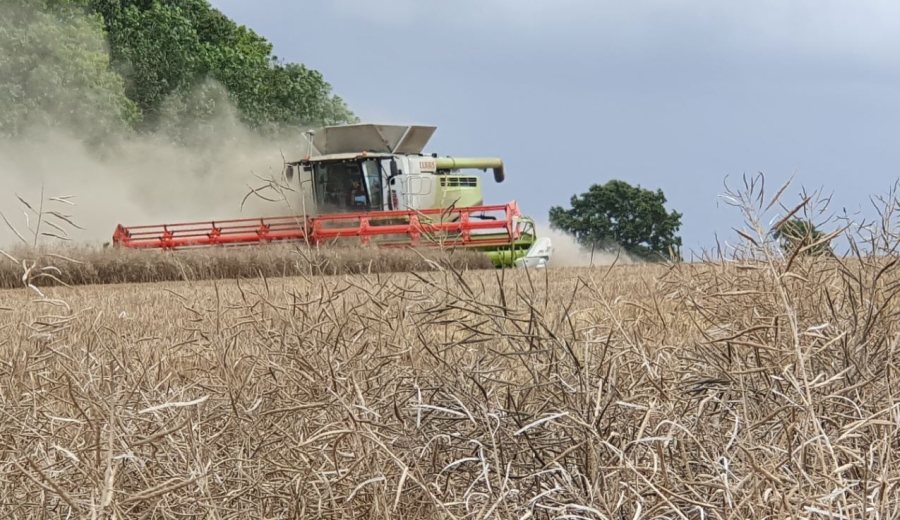
Britain’s oilseed rape (OSR) harvest is on track to smash records – and pump an extra £100 million into the rural economy.
Yields are expected to break the long-standing benchmark of 3.91 t/ha set in 2011 – and potentially exceed 4.0 t/ha for the first time.
United Oilseeds says this is being driven by improved seed genetics, favourable weather conditions and reduced pressure from cabbage stem flea beetle.
With 227,000 ha of OSR being harvested, the uplift represents almost 900,000 tonnes of crop – 200,000 tonnes more than the long-term trend – adding close to £100m to UK GDP before wider knock-on effects are even considered.
These benefits ripple well beyond the farm gate: an additional 7,000 lorry journeys worth around £3m for hauliers, extra work for merchants, processors and laboratories, and greater industry levies to fund research initiatives such as the new CSFB Research+ project.
James Warner, managing director of United Oilseeds, said: “Our members are delighted to see yields lift this year, with the benefits of the OSR Reboot work now coming through.
"For those prepared to give the crop the focus it deserves, oilseed rape continues to prove why so many still regard it as the number one break crop.
"Lower flea beetle pressure, favourable growing conditions, and major advances from seed breeders have all played their part.
"We’re optimistic that this will encourage more growers to bring OSR back into their plans for the season ahead.”
The extra 200,000 tonnes of British-grown seed reduces reliance on volatile global supply chains, providing around 90,000 tonnes of rapeseed oil – the equivalent of 90 million bottles – and over 100,000 tonnes of rapemeal, enough for 100 million daily cattle rations.
Higher OSR output is forecast to add £100 million in crop value and several million pounds more in transport, storage and associated services.
Around 14–15 full-time truck driving roles are supported by haulage alone. By replacing imports with homegrown production, more value stays within UK agriculture and allied industries.
Oilseed rape’s bright yellow flowers provide a vital food source for early pollinators. This year’s flowering period was exceptional, with increased area and density delivering more nectar and pollen across the countryside.
With farmgate prices holding steady at £370–£420/t, OSR is set to deliver gross margins above £1,000/ha on many farms – outpacing wheat and other break crops. A 4.0 t/ha yield at £400/t equates to revenue of £1,600/ha.
Looking ahead, Mr Warner urged growers to make use of industry guidance: “For growers wanting practical tips, the joint AHDB and OSR Reboot Top 10 Management Strategies for Combatting CSFB are there for everyone.
"These principles have been agreed across the industry, and with collective effort in the field, we can ensure the future viability of this vital homegrown crop.
"With the considerable investment in the new CSFB Research+ project, it’s clear that the industry is fully committed to OSR’s future.”
